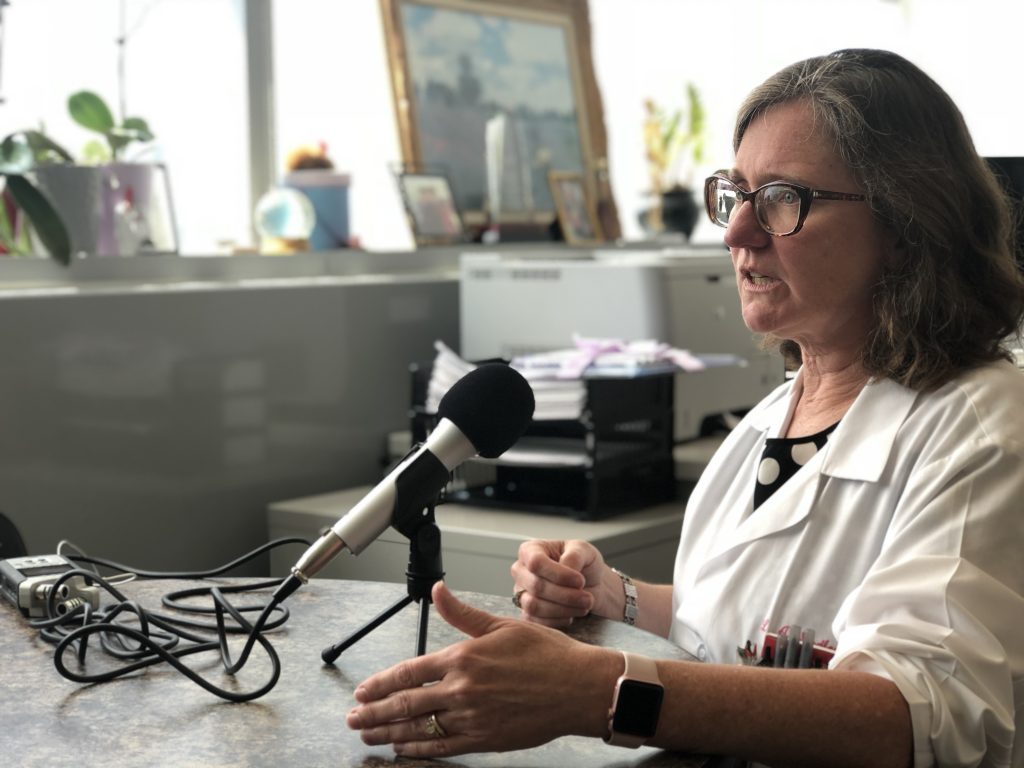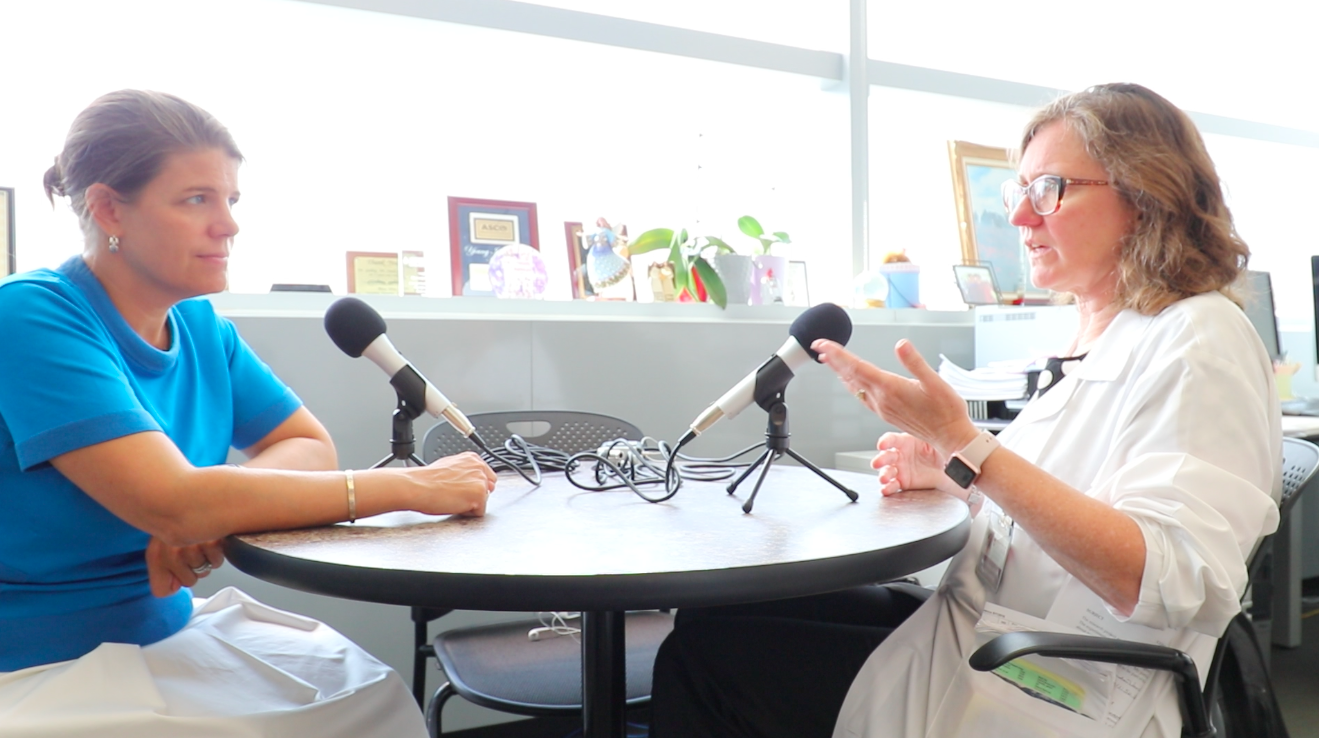Podcast Episode 002: Lucy Godley
Fighting cancer Episode 002: Lucy Godley, MD
Recently, we had a chance to sit down with Dr. Lucy Godley, the 2016 CRF Fletcher Scholar. Here are a few subjects we covered, but you can hear the entire session on our podcast. Just search for the “Fighting Cancer” podcast on Apple podcasts or wherever you choose to listen.
Dr. Godley, please describe your Fletcher Scholar Award:
The Fletcher Award is funding our work on CHEK2, a gene that has been known for many years to predispose the development of solid tumors. The role of that gene in blood cancer is more of a question mark. The Award is funding two projects. One is to look more deeply into the genetics of cancer patients with an inherited CHEK2 variance: is that mutation the only alteration they have inherited, or are there other genetic contributors to diseases in those individuals? The other project is to model what we see in people using a mouse model. If mice with CHEK2 variants have some or all of the features of the blood cancer that we see in people, that would be very strong evidence that inherited CHEK2 variants are a cause of blood cancers.
If the mouse model does closely resemble human disease, how will it be used?
First, the mouse model will be used to present functional proof that CHEK2 variations are implicated in blood cancers. We will also be able to model disease and therapeutic strategies. And, we have designed the model to express the CHEK2 variant to all of the mouse tissues, as well as the hematopoietic (blood related) system, so the model will also be useful for many types of research in solid tumors.

What implications could this have in patient care?
This finding would support the growing recognition that genetic predispositions lead to blood cancers. The World Health Organization has recently acknowledged in a provisional chapter that inherited predispositions lead to blood cancers. This means that doctors all over the world are now informed that they should look at the genetics of their blood cancer patients. It also has real implications for therapeutic transplantations, because the preferred donors are family members who may also have the germ line variations that predispose to cancer.
How has the Cancer Research Foundation helped to support your work? What is the role of private philanthropy in research?
When a young person has new ideas, they are not immediately accepted by the community at large and having a Foundation that is willing to invest in those ideas is critical to move the ideas forward. Early ideas are untested and uncharted and so are risky. Although National and Federal funding agencies might say on paper that they wish to fund “high-risk, high-reward” projects, in practice they are quite conservative. When I started having the sense from my clinical work that inherited predisposition to blood cancers was common, no one in the field accepted that to be true. So it really required that early support from the Cancer Research Foundation to give the funding to allow us to do the work that began to convince the scientific community. And then it gained traction and the larger funding sources began to accept the idea. But someone has to start it off and we were lucky to have the support of the Cancer Research Foundation to do just that and provide that early seed funding.
Click Here to listen to the podcast




